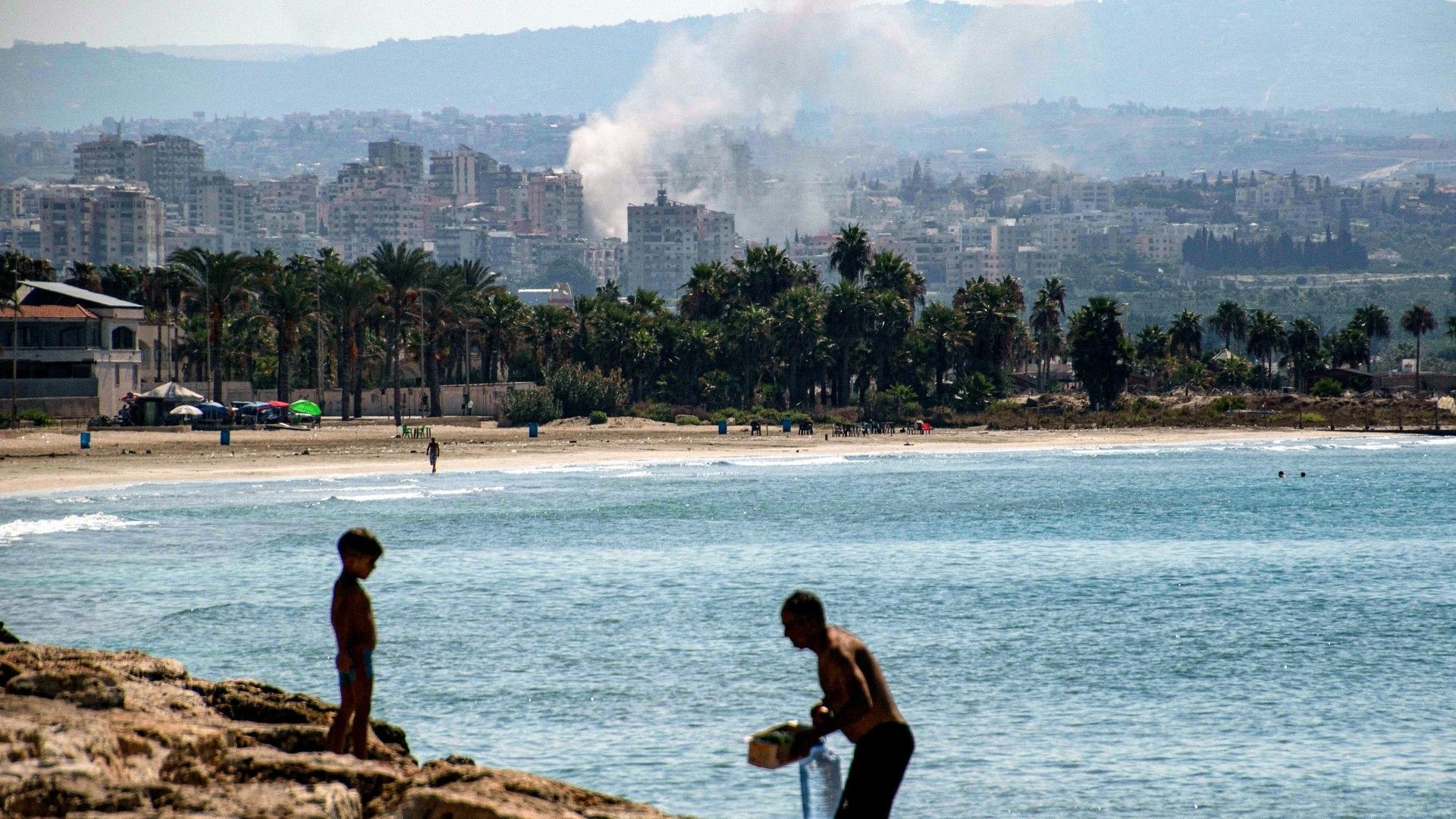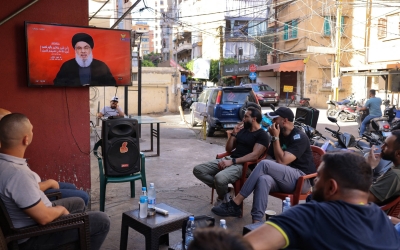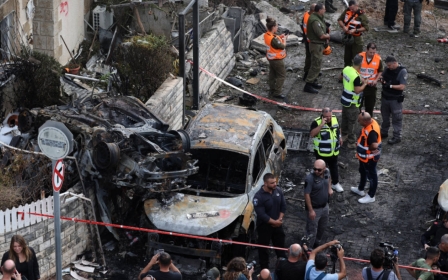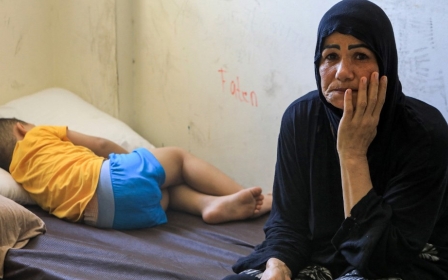Israel 'didn't even respond' to truce proposal, as it continues bombing Lebanon

Israel's prime minister indicated that he "did not even respond" to proposals aimed at bringing about a temporary ceasefire between Israel and Hezbollah, as Israeli forces continued raining down air strikes on Lebanon.
On Thursday, US President Joe Biden and French President Emmanuel Macron published a joint statement calling for a 21-day truce, aimed at paving the way for broader negotiations for a permanent ceasefire.
Just hours later, however, Prime Minister Benjamin Netanyahu's office rejected the idea.
"The news about a ceasefire - not true. This is an American-French proposal, to which the prime minister did not even respond," his office said.
"The prime minister instructed the [Israeli army] to continue the fighting with full force, and according to the plans presented to them," it said, adding that hostilities would continue in Gaza too.
New MEE newsletter: Jerusalem Dispatch
Sign up to get the latest insights and analysis on Israel-Palestine, alongside Turkey Unpacked and other MEE newsletters
Foreign Minister Israel Katz reiterated the message, writing on X that there would be no ceasefire.
Late on Wednesday, at least 23 people, all Syrian and predominantly women and children, were killed in an Israeli strike on a three-storey building in the Lebanese town of Younine. At least eight others were wounded.
Israeli attacks on Lebanon killed a total of 72 people on Wednesday.
Golan presses for shorter ceasefire
On Thursday, Lebanese media reported that Israel bombed a municipal building near Nabatieh in southern Lebanon. At least four people were killed by Israeli attacks along the border, according to the Lebanese health ministry.
Meanwhile, Israel's army said 45 rockets were fired from Lebanon towards the Galilee region in northern Israel.
Hezbollah said it launched a barrage of missiles on Israel's Rafael military facilities, based north of Haifa.
Lebanon's Interior Minister Bassam Mawlawi said that 500 shelters, including many in schools, had been set up across the country to accommodate people forcibly displaced by the war.
The calls for a three-week truce were rejected across the political spectrum in Israel.
Opposition leader and head of the Labour Party, Yair Golan, stated in an interview that "we must not agree to a three-week a priori ceasefire".
Golan suggested a shorter ceasefire of three to four days, during which time progress could be made with the Lebanese government and secured with international guarantees.
Meanwhile, Gideon Sa'ar, a lawmaker in Netanyahu's Likud party who formally served as justice minister, urged Israel to intensify its air strikes on Lebanon.
He wrote on X that an apparent "slowdown" in Israeli attacks on Beirut, compared with strikes on southern Lebanon and the Bekaa valley, were "mistakes".
Qatar's foreign ministry said that no formal mediation efforts had been launched to secure a ceasefire in Lebanon.
The US and France's temporary truce proposal was endorsed by the UK, Australia, Canada, the EU, Germany, Italy, Japan, Saudi Arabia, the UAE and Qatar.
Macron called "strongly on Israel to stop the escalation in Lebanon and on Hezbollah to stop the shooting", and conveyed his "fraternal thoughts" to the Lebanese people.
He also called for an end to the war on Gaza, which had "gone on too long" and caused "tens of thousands of Palestinian civilian casualties".
Middle East Eye delivers independent and unrivalled coverage and analysis of the Middle East, North Africa and beyond. To learn more about republishing this content and the associated fees, please fill out this form. More about MEE can be found here.





